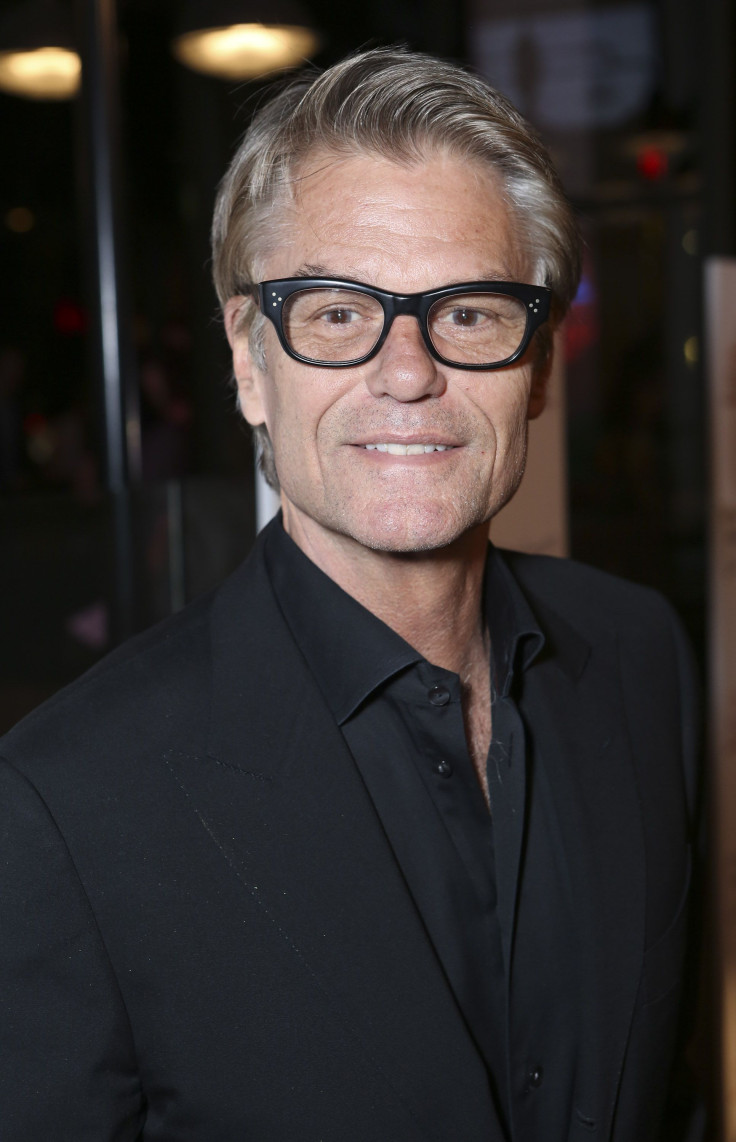Harry Hamlin Says Playing A Gay Man In 'Making Love' Ended His Film Career
Harry Hamlin believes his role as a gay writer in the 1982 movie "Making Love," which is about a same-sex affair, ended his film career, and it has a lot to do with how people received the project.
"I was told by a lot of people, you can't do that movie," the 70-year-old actor told People as he reflected on the film's 40th anniversary. "I think it had been offered to pretty much everybody in town and everyone had turned it down because they thought it might be damaging to their careers."
"I didn't see it that way," he said, adding, "I was looking for something serious and something meaningful, rather than doing a movie about vampire bats invading a small town in the Midwest, which is the type of fare I was being offered at the time."
"Making Love," which was considered first of its kind for a major studio like Twentieth Century Fox, follows a young doctor named Zack (Michael Ontkean), who is married to Claire (Kate Jackson), a TV executive. Eventually, he becomes romantically involved with a gay writer named Bart (Hamlin).
The movie was "way ahead of its time," according to Hamlin.
"Even though I was told by my friends not to do it, my agent said I should," the actor said further. "He said I was somewhat Teflon because I was out in the press having had a son with Ursula Andress. And he said, 'Everyone knows you're straight so you're going to be okay.' But I didn't really pay much attention to any of that noise. I thought it was interesting and bold. I was attracted to that."
Hamlin strongly believes that the way people received the movie had a huge impact on his career.
"For years, I'd think was that the reason why I stopped getting calls? And finally realized that was the last time I ever did a movie for a studio," he explained. "I've done independent films but never a studio film. I had been doing nothing but studio films and basically going out on all the castings for all the movies. That stopped completely."
"It never really got the attention that I think it probably deserves, given the time in which it was released," he said. "The movie was panned and my performance was ignored. The reviews were all negative, pretty much."
"As far as the film business sort of shutting the door, I think it just had to do with the fact of the studio system being a closed system and once they saw there could be some confusion about my sexuality, then they just said they didn't want to take the chance," he continued. "If they were contemplating having me be a love interest to a young female star, the thought was, 'How is the audience going to react?' Even though I was straight, I think the perception at the time was that anybody who could play gay must be gay."
Regardless of how the project affected his career, however, the actor remains proud of it.
"I'm very proud of having done that movie," said Hamlin, who later rose to fame with the hit series "LA Law" in 1986.
This isn't the first time the actor has attributed his loss of film career to "Making Love." In a 2020 interview with the Hollywood Reporter, Hamlin shared the same sentiment, even describing the movie as "too early."
"It was 10 years too early, I guess, and it completely ended my career," he told the outlet at that time. "That was the last studio picture I ever did. The door shut with a resounding smash."
Hamlin also explained that "everyone in the town had turned the movie down" because "at that time the idea of a gay world was still not accepted."

From there, he built a wide-ranging career, including a role in "Mad Men" and a recent part Tom Brokaw in National Geographic's "The Hot Zone: Anthrax," which is currently streaming on Hulu. "I'm interested in working as an actor. I happen to think that TV is where it's at right now. As long as the part is good, I'll do it."
Hamlin then added that while being gay was considered taboo back then, it is something that people are more accepting of, now. "Now a gay love story can be told freely. There's been a tectonic shift since 1981 in people's conscious and how they approach human sexuality."
"People come up and thank me for making the film and say they were affected by it and that it helped them come out or it helped them talk to their parents about their sexuality," he says. "Very rarely does one have an opportunity to have that kind of effect out there in the zeitgeist."
© Copyright IBTimes 2024. All rights reserved.





















